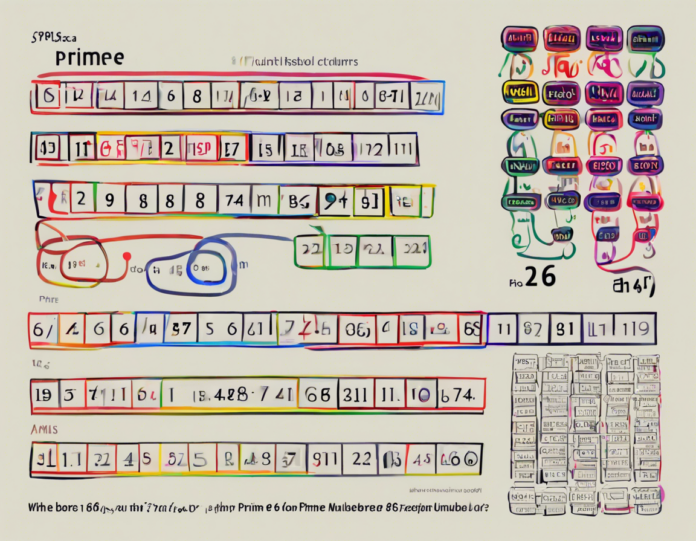Prime numbers are a fundamental concept in mathematics that frequently sparks curiosity and interest. In this article, we will delve into the intriguing world of prime numbers, with a specific focus on the number 61. We will explore what prime numbers are, characteristics of 61 as a prime number, its significance, properties, and some interesting facts. So, let’s embark on this mathematical journey together.
What Are Prime Numbers?
Prime numbers are natural numbers greater than 1 that are divisible only by 1 and themselves. In simpler terms, prime numbers are numbers that have exactly two distinct positive divisors: 1 and the number itself. The first few prime numbers are 2, 3, 5, 7, 11, and so on.
Characteristics of 61 as a Prime Number
- Mathematical Property: As previously mentioned, 61 is a prime number because it is only divisible by 1 and 61.
- Odd Number: Prime numbers greater than 2 are always odd, including 61.
- Non-Composite Number: Number 61 is a non-composite number, meaning it cannot be formed by multiplying two smaller natural numbers.
Significance of 61 as a Prime Number
Prime numbers, including 61, play a crucial role in various aspects of mathematics, computer science, and cryptography. Some key points regarding the significance of prime number 61 include:
– Security: Prime numbers are used in encryption algorithms to secure data transmission and protect sensitive information.
– Factorization: Prime numbers are integral in number theory, specifically in the study of factorization and the fundamental theorem of arithmetic.
– Prime Factorization: Every positive integer greater than 1 can be uniquely expressed as a product of prime numbers, known as prime factorization.
Properties of 61
- Prime Factorization: The prime factorization of 61 is 61 itself, as it is a prime number.
- Sum of Digits: The sum of the digits of 61 (6 + 1) is 7.
- Binary Representation: In binary form, 61 is represented as 111101.
Interesting Facts about 61
- Palindromic Prime: 61 is a palindromic prime number, as it reads the same backward as forwards.
- Prime Gap: The prime gap between 61 and the preceding prime number, 59, is 2. Prime gaps are the differences in consecutive prime numbers.
- Prime Quadruplet: 61 is part of a prime quadruplet, along with 59, 67, and 71, where all four numbers are prime.
FAQs about Prime Number 61:
- Is 61 a Prime Number?
-
Yes, 61 is a prime number as it has exactly two distinct positive divisors: 1 and 61.
-
What is the Prime Factorization of 61?
-
The prime factorization of 61 is 61 itself since it is a prime number.
-
How Many Divisors Does 61 Have?
-
Being a prime number, 61 has only two divisors, 1 and 61.
-
Is 61 a Palindromic Prime?
-
Yes, 61 is a palindromic prime as it remains the same when its digits are reversed.
-
What is the Binary Representation of 61?
- In binary form, 61 is represented as 111101.
In conclusion, the number 61 holds a special place as a prime number in the realm of mathematics, embodying unique properties and significance. Understanding prime numbers, including 61, enriches our comprehension of mathematical principles and their applications in various fields. Whether exploring the security aspects of prime numbers in cryptography or marveling at their elegance in mathematical theory, prime number 61 stands as a testament to the beauty and complexity of the numerical world. How fascinating it is that a seemingly simple number like 61 can unravel a universe of mathematical wonders.





